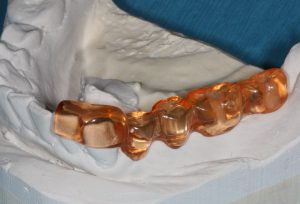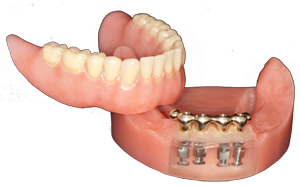What Factors Need To Be Considered For Dental Implants?

Advances in implant dentistry over the years has offered patients who had to live with removable dentures a new beginning in that they can now enjoy the ability to eat and smile again. But even with all these advances, procedures involving dental implants are serious matters, meaning that patients need to be fully educated before agreeing to have them. Dentists in Adelaide encourage their patients to take control of their dental health by researching on dental implants prior to having them placed. In this way, they will feel at ease proceeding with this restorative dentistry. Here are some factors to think about prior to deciding on dental implants.
 The Dentist
The Dentist
Like in all other fields, dentists involved in restorative dentistry are not all the same. Some are more experienced and skilled than the others. So, if you are planning for dental implants, you might want to start by finding out the number of dental implants your dentist places each year, and also the number of years he or she has been carrying out the procedure. Any evidence that the dentist can present regarding his or her own personal success rate in the procedure is reassuring. This evidence can include actual statistical documentation, before and after shots of previous patients, and so forth.
A dental implant dentist should have a success rate of at least 85-90% on the low end of the spectrum. Whichever the case, patients must understand that implant failures do happen. It is therefore critical to discuss with the dentist what his or her policy is should a failure occur.
 The Technique To Opt For
The Technique To Opt For
The success of implant dentistry largely depends on an all-inclusive approach to the entire process. Find out whether or not the treatment includes an extensive look at the area to be treated before placing the implants. For precise placement, the implants need to be designed in such as way that they perfectly fit in with the rest of the patient’s teeth aesthetically.
Dental implants must be specifically placed within the soft and hard tissues, i.e. gum and bone, in a manner that allows them to remain both functional and healthy over extended duration of time.
 Bone Quality
Bone Quality
Patients who opt for dental implants have lost some or most of their teeth, or are preparing to have some extracted. However, note that whenever a tooth is lost, the alveolar bone that supports the teeth deteriorates. The main reason for this deterioration is due to no longer having any sort of stimulation in this area. So, what is alveolar bone? Well, this is the sac-like bone that contains packets that enclose around the teeth. Since dental implants are placed and fused directly to the bone, having a strong alveolar bone is important.
In the event that this bone has significantly deteriorated over the years, and hence is not in good enough shape to support the dental implants, it will need to be rebuilt. For this to happen, there should be enough gum, and where there isn’t, it will also need to be reconstructed. Imaging and x-rays will have to be done to help determine the quality of the bone before placing implants on it. Sometimes, 3D CT scan must also be performed. All these scans help to plan the proper course of action for the patients, and to ensure that the implants are accurately placed.
Archives
- October 2018
- April 2018
- March 2018
- January 2018
- December 2017
- November 2017
- October 2017
- August 2017
- July 2017
- September 2016
- July 2016
- June 2016
- May 2016
- April 2016
- August 2015
- May 2015
- March 2015
Recent Posts
- Common Dental Problems In Adults
- A Sensitive Teeth Survival Guide
- Do You Suffer From Bad Breath?
- What is Sleep Apnea and How Can You Treat it?
- 4 Myths About Baby Teeth Busted







